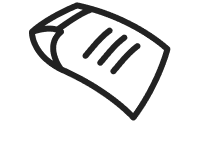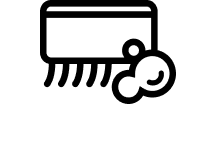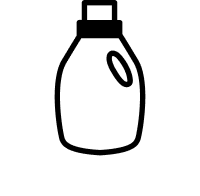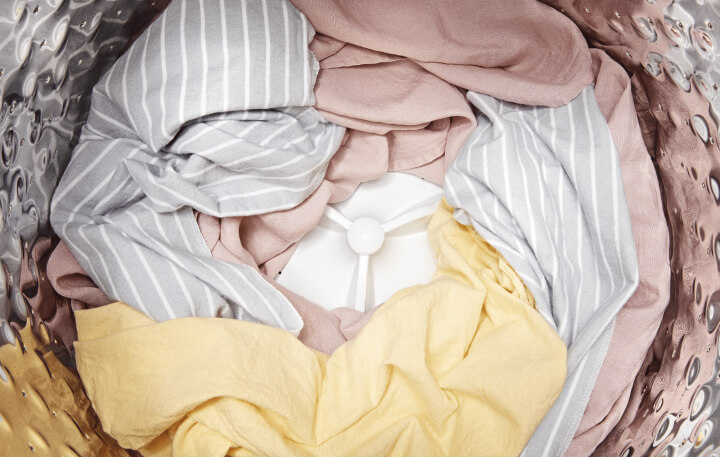
How to wash colored clothes in 8 steps
Hooray for laundry day! Everyone loves clean clothes, which is why it’s important to know how to care for your family’s favorite outfits. One of the best ways to keep everyone looking sharp is by learning how to wash colored clothes properly. When caring for bright colored clothing, there’s always a risk of fading. Fortunately, keeping colored clothes in good condition isn’t challenging with the right washing approach. By using the steps below, you can help keep your dress shirts, pants, skirts, sweaters and blouses looking their best.


Washing colored clothing instructions
Washing colored clothes with the right water temperature, wash cycle, detergent and drying method based on the care tag can help prolong the life of your favorite outfits and keep colors vibrant. Gather the supplies below and walk through eight easy steps that teach you ways to wash colors in any type of washing machine.
Supplies
Laundry detergent
Stain remover (optional)
Drying rack (optional)

Step 1: Check labels
Clothing labels can act as a guide to finding the right wash temperature and cycle, helping extend the life and look of your clothing. Before you toss your clothes in the washing machine, take some time to double check labels and set aside clothes that need hand washing or are dry clean only.

Step 2: Sort clothing
Sorting clothes before washing helps keep your clothes from fading and bleeding during wash and dry cycles. This step is relatively simple and can be a great chore for your kids if some extra help is needed in the laundry room. Try to group colors together – wash pastels in one group, then separate reds, oranges and yellows from green, blue or purple items with darker hues. If your brights are brand new, wash them separately for the first few washes to help keep them from bleeding dye onto other clothes.
Sorting by color can help keep your clothes looking vibrant, but sorting by fabric type and weight can be just as important, especially when washing wool. Avoid damaging clothing fibers by grouping fabrics of similar weight together. While you’re sorting, separate towels and sheets from your clothing and wash them using a long, hot wash cycle to get a thorough clean.

Step 3: Pretreat clothes
Pre-treat stained clothes and set them aside to wash separately if they are heavily soiled. Choose the shortest wash cycle possible based on the item's care label, level of soiling, and use cold water. If one of your brights bleeds onto another, do not place the soiled item in the dryer – heat will set the stain. Instead, wash this item separately in cold water until the dye washes out.

Step 4: Load the washer
Loading the washer seems pretty straightforward, but there are some best practices by washer type that ensure your clothes are thoroughly cleaned. Place items loosely around the impeller or agitator so they have enough room to move, and make sure the load is evenly balanced.
Load a front-load washer by adding items that fit into the drum loosely. Overfilling the washer won’t allow clothes to tumble or clean properly, so make sure you don't pack the washer drum tightly. Ensure all clothing items are fully loaded into the drum before closing the door. If you only plan to wash one or two items, add a couple of clean towels to the load to help balance it out.

Step 5: Add the right amount of detergent
Using more detergent than you need can leave residues on clothing, visually fade colors, and attract more dirt. Swash™ Laundry Detergent from Whirlpool Corporation1 features a Precision Pour Cap that dispenses the detergent for you, so you only pour what you need. To help keep dyes from bleeding, select detergent without boosters or bleach alternatives.

Step 6: Set water temperature
Now that you’re ready to set the cycle, do you wash colors in hot or cold water? Colored clothing—particularly bright and bold colors—should be washed in cold water. Cold cycles use cooler water temperatures to help prevent colors from bleeding and fading. Factors like fabric type can also influence wash temperature, so don’t forget to reference your clothing’s care tag before washing.

Step 7: Set cycle type
Washing clothes always contributes to some wear, but a gentle cycle limits the amount and time of agitation in the washer to help care for clothing fibers— and can help reduce how rapidly clothes pill and colors fade. Do your best to pretreat a heavily soiled load, but if it needs a more thorough clean, you can bump up the intensity with a Normal wash cycle.
If one of your brights bleeds onto another, do not place the soiled item in the dryer – heat will set the stain. Instead, wash this item separately in cold water until the dye washes out.

Step 8: Dry with low heat
Drying colored clothes is best left to a machine dryer or indoor drying rack, as the sun from outdoor drying may cause colors to fade. Hanging your clothes indoors and out of direct sunlight can help preserve the color and quality of your clothing, but tumble-drying on a low-heat cycle can also get the job done with minimal wear to your favorite outfits. Use the lowest dryer cycle heat setting recommended by your item's care label and remove your clothes as soon as they’re finished. Some dry cycles, like the Air Only cycle on select Whirlpool® Dryers, are designed to get your clothes dry with no heat.

Find the best washer for you

What size washer do you need?
Can you wash and dry colors and darks together?
Knowing what colors can be washed together can help keep your clothes looking newer longer. Light colored fabrics are sensitive to darker dyes and can absorb them and look faded, so it’s best to keep colors and darks separate for both washing and drying. Keep light colors like pinks, lavenders, yellows, light blues and light greens separate from grays, blacks, reds, navies and other dark colors.


Can you wash and dry colors and whites together?
It’s tempting to wash colors and whites together when loads are small or you’re in a hurry to get your favorite items back in the drawer, but it’s best to resist the urge. Dyes from colored clothing can bleed and cause whites to look tinted or dingy over time. If you’re in a pinch and need to wash colors and whites together, be sure to use cold water and avoid adding any new colored clothing that hasn’t been washed several times before.

Washers with Pretreat Station
Soak, scrub and wash all in one spot
Whirlpool® Washers with Pretreat Station offer a built-in faucet and pretreat brush for easy access to tools that help you get it all done at once
Explore Whirlpool® Washers and Dryers
Need appliances that can help you keep your family’s clothes bright and clean? Discover your next washer and dryer from Whirlpool brand.


Helping kids stay in school
Learn how Whirlpool helps end the dropout cycle by giving kids access to clean clothes through the Care Counts™ Laundry Program
Was this article helpful? Pass it on
Discover more from Whirlpool brand


home heartbeat
Ready for more tips, home hacks and appliance guides?

